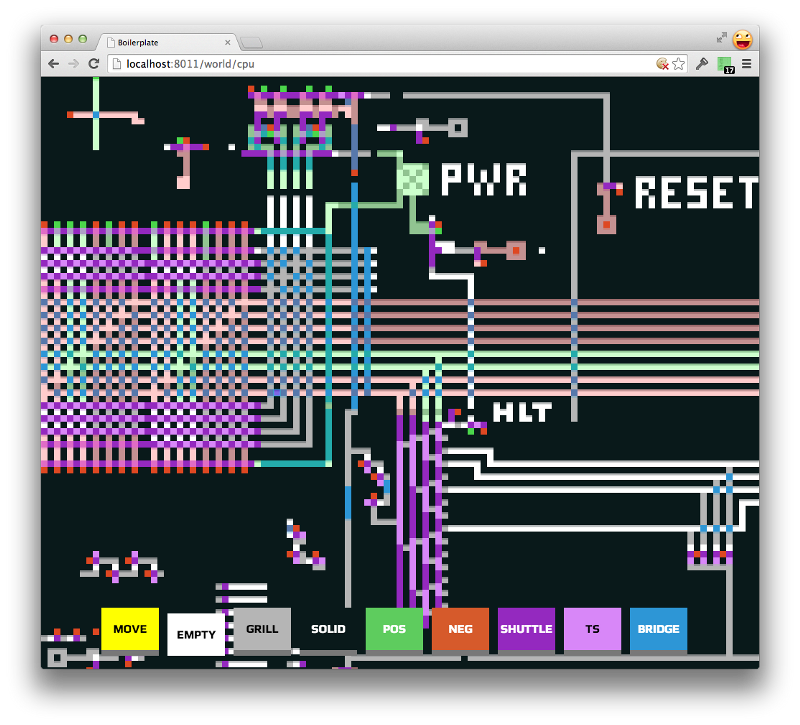Puzzle games take the player down a linear path, they say “solve this thing” and solve this thing and solve this thing and now either you’re bored and you put down the game, or you’ve reached the end and run out of puzzles. It’s engaging, and the feeling of progress is a powerful one, but in the end it cuts out on something I think of as the “open sky”.
When Joseph and I made Boilerplate, we spent hours and hours playing in the sandbox. “I wonder if I can X…?” was the catch cry. Puzzle games provide the X (goal) and the answer (yes, it is possible) for you, and leave you with the task of just filling in the details.

As the puzzle game leads you along this path, it kills your ability to ask yourself “what if?”. You never exercise that muscle, because the environment is so structured. They never show you the open sky.
It’s possible to go too far in the other direction, too, and provide so little structure that there’s nothing to grab onto. In that case, the “what if..?” questions don’t occur to you, but it’s because you don’t have enough of a model of the system to formulate an interesting question. The “what if?”s come from making predictions about a partially-complete, imperfect simulation of the system in your head. If you never have enough of a model in your head to begin with, you won’t get any interesting predictions.
I think there’s room between these two extremes—on the one end, linear hand-held progression-oriented puzzle-solving, on the other, totally free blank-canvas creativity. Kerbal Space Program does a pretty good job at this: the contracts in career mode are just boring enough that they don’t completely hold your attention, and your mind starts wandering to other things. Can I visit every planet with a single space craft? Can I assemble a space station bigger than the spaceship hangar? How big can an explosion be?